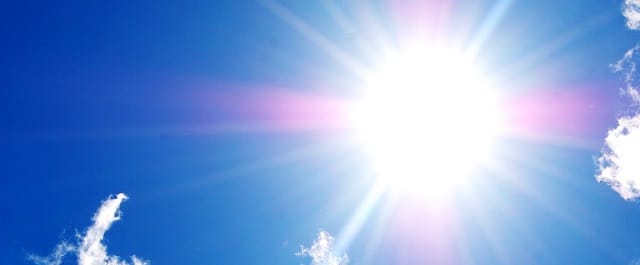Solar energy for 1bn people?

Grand solar energy plans — such as turning the Sahara or the Mojave into giant, clean power plants — are good at grabbing big headlines and big investments. But, for hundreds of millions of people around the world, the energy revolution lies with small-scale solar.
Affordable, off-the-grid, renewable energy could help deliver what some 1.3 billion people on the planet currently lack: electricity for lighting their homes, workplaces and schools.
Sustainable energy for all — which is actually the name of a UN initiative launched in late 2010 — could help reduce poverty and improve lives, especially in remote and rural parts of the developing world. Simple solar-powered lighting lets children study at home at night, allows craftspeople and small business owners to keep working after dark, improves safety and security, and makes it possible to provide critical medical care around the clock.
Getting solar-powered lighting into the hands of people who could benefit from it most can involve a tangle of financial, logistical and regulatory challenges. Through its Programme of Activities, the UN’s Clean Development Mechanism (CDM) has provided one way for many small solar companies — among them, ToughStuff and Barefoot Power — to navigate that maze.
Solar lights can also be invaluable for anyone, on the grid or off, during and after a disaster.
LuminAID Lab founders Anna Stork and Andrea Sreshta unexpectedly gained first-hand experience with that. The two, who met as architecture and design students, already shared an interest in solving global problems and began developing their inflatable, waterproof and solar-powered LED light after the devastating 2010 earthquake in Haiti. Ironically, a year later, the two were on a school trip to Japan when they found themselves in the midst of the deadly Tōhoku quake there.
Now a finalist in the 2013 US Clean Energy Challenge, LuminAID lights have since been shipped to disaster areas following last year’s Hurricanes Isaac and Sandy.
The good news is that bringing renewable energy to those without isn’t, relatively speaking, all that expensive. The International Energy Agency estimates that providing universal access to energy could cost less than $50 billion a year — that’s one-third less than what the US spends on soft drinks every year.
In fact, two technology trends are helping to make better, affordable energy access increasingly possible: advances in ever-more-efficient (especially LED) lighting and dramatically falling costs for photovoltaics (a 65 percent drop in price over just the past two years, according to the World Economic Forum).
A new organization launched just last June aims to build on the momentum of those two trends. The Global Off-Grid Lighting Association, or GOGLA, says part of its mission is to position off-grid lighting “outside the philanthropic arena as a fully recognized industry in an important and growing market.”
In addition to companies like Philips and Osram that are already household names in lighting, GOGLA’s membership includes small solar lighting businesses like Barefoot Power, Bright Products, BrightBeam, d.light design, Fosera, Greenlight Planet, Niwa Solar, Nokero (as in, “no kerosene”), One Degree, Prakruthi Power, Sinoware, SunTransfer and WakaWaka Light.
WakaWaka (the name means “shine-shine” or “shine bright” in Swahili, “do it, do it” in Bantu or “look, look” in Papiamento) notes on its website that a solar-powered lamp can do much more than simply provide household lighting for study and work. It immediately reduced carbon emissions, helps prevent fires and reduces a family’s spending on kerosene, the lighting fuel of choice for many people who live off the grid.
“When a family normally spends 10% to 20% of their scarce income on lighting fuels, they immediately save this when they switch to solar light,” says WakaWaka’s site. “It can be spent on food, clothing, tuition and other basic necessities, making life at the Base of the Pyramid slightly better instantly.”




